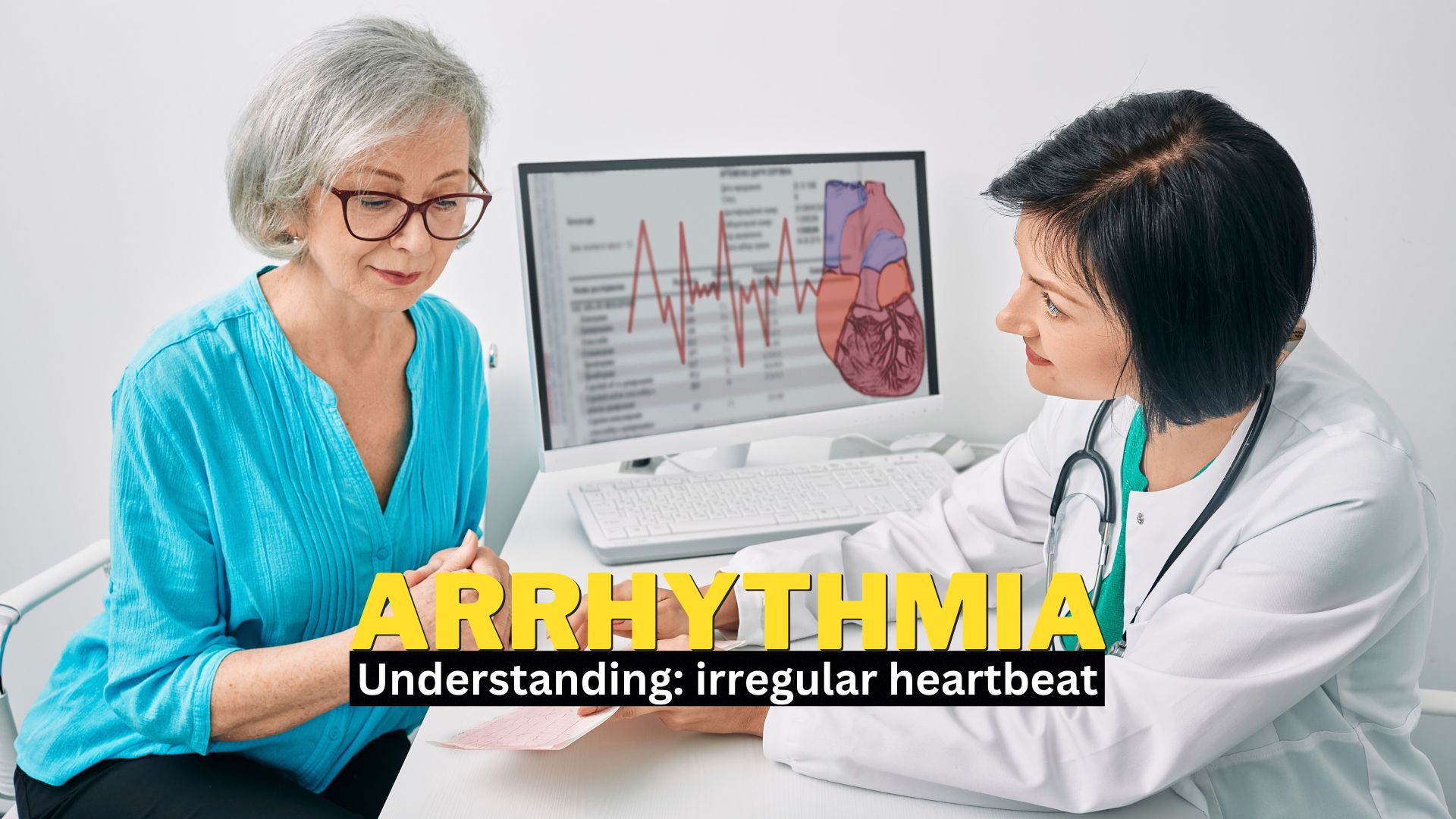Arrhythmia refers to any change from the normal sequence of electrical impulses in the heart. These impulses may happen too fast, too slow, or erratically — causing the heart to beat too fast (tachycardia), too slow (bradycardia), or irregularly. This can affect the heart’s ability to pump blood effectively, though many arrhythmias are harmless. Here’s a deeper look at the causes, symptoms, and treatments of arrhythmias.
Causes of Arrhythmia
Arrhythmias can be caused by various factors, including:
- Heart Conditions: Any structural changes in the heart due to issues like heart attack, coronary artery disease, heart valve problems, or heart failure can prompt arrhythmias.
- Electrolyte Imbalances: Imbalances in electrolytes such as potassium, sodium, calcium, and magnesium can affect the heart’s electrical impulses.
- Congenital Heart Defects: Being born with heart abnormalities can impact normal heart rhythm.
- Substance Use: Excessive use of alcohol or caffeine, smoking, and certain drugs like amphetamines or cocaine can induce this condition.
- Other Triggers: High blood pressure, diabetes, overactive thyroid gland (hyperthyroidism), stress, certain over-the-counter medications, prescription medications, dietary supplements, and herbal treatments.
Symptoms of Arrhythmia
Symptoms can vary widely, and some might not experience any symptoms. However, common indicators include:
- A fluttering feeling in the chest (palpitations)
- A racing heartbeat (tachycardia)
- A slow heartbeat (bradycardia)
- Chest pain or discomfort
- Shortness of breath
- Light-headedness or dizziness
- Sweating
- Fainting (syncope) or near fainting
Diagnosis of Arrhythmia
If an arrhythmia is suspected, the following diagnostic tests might be conducted:
- Electrocardiogram (ECG): This is the primary tool for diagnosing rhythm abnormalities. It records electrical signals in the heart.
- Holter Monitor: A portable ECG device worn for a day or more to record the heart’s activity as you go about your daily routine.
- Event Monitor: A device worn to record the heart’s activity over a few weeks or months.
- Echocardiogram: This ultrasound test creates images of the heart in motion to identify structural heart disease.
- Stress Test: Sometimes arrhythmias can only be triggered or worsened by exercise.
- Electrophysiological Testing and Mapping: This test finds the exact location of rhythm problems within the heart.
Treatment of Arrhythmia
Treatment depends on the type and severity of the arrhythmia. Some people with harmless arrhythmias might not need treatment, while others may require the following:
- Medications: Anti-arrhythmic drugs can control or prevent episodes of arrhythmia. Beta-blockers and calcium channel blockers are used to manage heart rate and rhythm.
- Electrical Cardioversion: An electrical shock is given to the heart under general anesthesia to reset the heart to its regular rhythm.
- Catheter Ablation: A procedure used to destroy small areas in your heart that may be causing the rhythm problems.
- Pacemaker: A device that sends electrical pulses to the heart to keep it beating regularly and not too slowly.
- Implantable Cardioverter Defibrillator (ICD): A device similar to a pacemaker that detects heart rate irregularities and delivers an electric shock to restore a normal heartbeat.
- Surgery: In severe cases, surgery may be required to repair a heart abnormality causing the arrhythmia.
Lifestyle Changes and Management
Lifestyle changes can help manage an arrhythmia. These include:
- Eating heart-healthy foods
- Exercising regularly
- Quitting smoking
- Limiting or avoiding caffeine and alcohol
- Reducing stress and anxiety
Proper understanding and management of arrhythmias are essential for maintaining a good quality of life. If you suspect you have an arrhythmia, consult with a healthcare provider for an accurate diagnosis and appropriate treatment.


